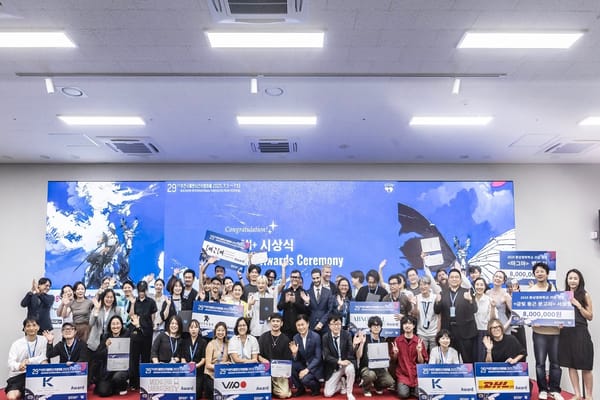'Joyland', 'Nice View', FFI, NSOC And Other Issues Facing The Oscars' Best International Feature Category

The extraordinary journey of Pakistan’s Oscar submission Joyland last week – going from banned in its home country, to still qualifying for the Oscars via a French release, to having its ban reversed, all within the space of a week – illustrates yet again some of the issues faced by the Academy’s Best International Feature Film category. This edition of Streamlined attempts to unpick some of those issues, especially in the submissions and eligibility process, also looking at what has happened this year in India, Nigeria and China.
Streamlined’s next edition will look at Southeast Asian cinema, for which I’ve banked quite a few interviews, but not had time to write. I’d like to thank the people I’ve spoken to for their patience. In addition to catching up with friends and acquaintances on the road, I’ve also been catching up with quite a few viruses – Norovirus, Rhinovirus, but this time around, not Corona, which is so 2020. As a result, Streamlined’s publishing schedule is seriously out of whack. But now that I must have immunity to pretty much everything, I’m hoping to get it back on track.
‘Joyland’ And The Cautionary Tale Of The Fashion Designer On Instagram
At the time of writing, it looks as if Saim Sadiq’s Joyland was finally released in some cinemas in Pakistan on Friday (November 18), but not in Punjab, the country’s largest province by population, which banned the film less than 24 hours after the federal government overturned the previous nationwide ban
Confused yet? Since premiering this year in Cannes, where it won the Un Certain Regard Jury Prize, Sadiq’s debut feature – about a young married man who falls for a trans woman – has had a trajectory with more twists and turns than a Christopher Nolan movie. After being cleared for release by Pakistan’s censor boards in August, the film fell victim to a #BanJoyland viral campaign and was banned by the Ministry of Information and Broadcasting on November 11, one week ahead of its theatrical release.
Joyland’s US publicists and French distributor Condor Distribution then saved the day by arranging to give the film a one week release in France from November 22, thus enabling it to still qualify for the Oscars, despite being banned in its home territory. A few days later, a special commission set up by Pakistan’s Prime Minister Shehbaz Sharif overturned the ban saying it could be released theatrically with a few minor edits.
Pakistan is an Islamic Republic, not a secular state, but it’s interesting to note that it hasn’t necessarily been Islamic hardliners calling for the ban. One of the most vocal opponents was fashion designer Maria Butt (a.k.a. Maria B.), who helped spread the #BanJoyland hashtag among her followers on Instagram. Maria B. appears to be a kind of latter-day (and much more glamorous) Mary Whitehouse with her concerns about threats to family values, but unlike that moral crusader who terrorised British liberals in the 1960s, she has access to social media, and can get a film she probably hasn’t seen shut down in a week.
So it has been a stressful, but at least partially successful, outcome for Joyland, and no doubt the publicity will not hurt its chances at making the best international feature shortlist. But it raises once again the issue that the Academy’s requirement of a one-week Oscar-qualifying run can be difficult for films in countries where the submissions are likely to get banned. Not every Oscar submission has a French distributor and US publicists ready to spring into action. Many don’t even have a sales agent.
Also, the Academy’s rules were forged back in the days before social media could take the fate of a film out of the hands of national censor boards and place it with the hordes on social media. Twitter may not make it to the end of this week, but Maria B.’s weapon of choice was Instagram and we still have Facebook for the oldies and TikTok where you run the risk of being shut down by the kids.
But the qualifying run rule is not even the biggest headache for the beleaguered best international feature category. At least Pakistan took the brave decision to submit the film in the first place. A bigger issue is that each country has to set up a committee to select its submission, but in some countries there are questions around how these committees are formed, who exactly is on them and the transparency of their decision-making processes.
China Stays Positive While India Marches To The Beat Of A Different Drummer
In some cases, the selection committee is quite clearly under the influence of the country’s government. This year, China could have selected award-winning drama Return To Dust – the film premiered in Berlin, sold widely internationally and has been winning plaudits at festivals all year. It even became a surprise sleeper hit in China, grossing around $15m, before Zheng Yanshi, a senior researcher at the Kunlun Policy Research Institute, got around to seeing it. Horrified by its realistic depiction of China’s rural poverty, he contacted state censors and denounced the film for having “ulterior motives” and “repeatedly hyping them up ahead of the party congress.” The film then swiftly disappeared from cinemas and streaming platforms.

Instead, China has submitted Wen Muye’s Nice View, a film in keeping with the government’s agenda of promoting “positive energy”. It could have been worse – despite its politically correct messaging, Nice View, the story of a young man striving against the odds to raise funds for his sister’s expensive surgery, is not a bad film or overbearingly patriotic as some of the recent war blockbusters have been. Wen previously directed the critically-acclaimed and entertaining Dying To Survive, based on the true story of a man who smuggled cancer drugs into China, which was not entirely positive about the country’s health service. But that was back in 2018. Given the current censorship environment, it's highly likely that the government had a direct hand in Nice View’s script.
In other cases, the committees are not influenced by government but are either blissfully unaware, or really don’t care, about the kind of films that are likely to make the shortlist. The Oscars are a strategic game that India’s selection committee – assembled annually by the Film Federation of India (FFI) – has resolutely refused to play. The FFI created the biggest uproar in 2013 when it selected a solid but mostly unknown film, Gyan Correa’s The Good Road, over Ritesh Batra’s The Lunchbox, a film with Sony Pictures Classics on board and a string of festival plaudits. It also raised eyebrows in 2020 when it chose Lijo Jose Pellissery’s Jallikattu, a wildly original but culturally specific film, over Chaitanya Tamhane’s The Disciple, which had won best screenplay at Venice and is executive produced by four-time Oscar winner Alfonso Cuaron.

This year, there was controversy over the committee’s selection of Pan Nalin’s Last Film Show over S.S. Rajamouli’s RRR, although in many ways the decision makes perfect sense. It makes a huge difference to a film’s Oscar prospects if it has a strong US distributor on board, thus giving it access to a wider American audience, and Last Film Show is being released by Samuel Goldwyn Films on December 2. While RRR had a successful US release and some crossover buzz, it was through a company that specialises in releasing Indian films, and has no Oscar campaigning expertise. Also, RRR is a straight-up action film and genre movies seldom perform well in the best international feature category. It does however stand a better chance in some other Oscars categories, which is what it’s currently campaigning for.
Nigeria’s Selection Committee Shoots Itself In The Foot
Then there are countries where the decisions of the selection committees are so bewildering that they can only be the result of industry infighting, internal politics, domineering individuals or some other either nefarious or arbitrary forces. Nigeria has often struggled to field an eligible contender for the best international feature category – not least because this linguistically diverse country often makes films with a high proportion of English, which is why its 2019 submission Lionheart was disqualified.
But this year, the Nigerian Oscar Selection Committee (NOSC) stunned the local industry by deciding not to submit a film at all, despite having three strong contenders – Biyi Bamidele’s Elesin Oba: The King’s Horseman, which premiered at Toronto International Film Festival, Adebayo Tijani and Tope Adebayo’s King Of Thieves and Kunle Afolayan’s Anikulapo.
Two of my fellow Substackers, Daniel Okechukwa and Anita Eboigbe, have tried to unravel that odd decision, which the NOSC declined to explain, in their informative Inside Nollywood newsletter highlighting some of the structural issues in the Nigerian film industry. It comes down to the same issues as in many other countries. The Academy sets the eligibility rules, then tries to stay out of the submission process, but it’s far from being a level playing field as the decision-making differs wildly from country to country.
Beyond the selection committees, it’s also time to question the practicality of having a category where every country in the world can field a contender. This may have worked back in the 1950s when not many nations were involved, but the number of countries submitting has crept steadily upwards in recent years and now usually hits more than 90. That means a nearly one in 20 chance of making the final nominations list, and for films from Asia, the Middle East and Africa, the odds are actually much longer. Considering the cost of campaigning is often higher than the budget of the submitted films, the teams behind most submissions thank the committee for the recognition then quietly move on.
Then there’s the ‘one country, one submission’ rule. National borders are not neatly aligned with cinematic or even film industry borders. India has several separate film industries, all making films in different languages, but can only field one film. Due to the necessity of international co-production and growing trend towards cross-border story-telling, some of the submitted films have little to do with the country of submission.
Cambodia’s entry this year, Return To Seoul, was directed and produced by Cambodian-French filmmaker Davy Chou, but is the story of a Korean-French girl, filmed in South Korea in French and Korean. Cambodia has a tiny film industry, arguably a Khmer-language film is unlikely to gain the same profile, but how closely should submissions reflect the culture of their country of origin? Cambodia was actually nominated in this category in 2013 – with Rithy Panh’s documentary The Missing Picture, which was filmed in French.
So if the current system is broken, what is the answer? Variety’s chief film critic Peter Debruge recently suggested that films should be selected from the pool of hundreds of foreign films that are released in the US each year. But while this would undoubtedly help US distributors, and the commercial prospects of some films in the North America market, it would exclude the many films that US buyers would never even consider acquiring because they believe US audiences would not relate to their story-telling, cultural context or aesthetics.
And are the Oscars really just about films that please US audiences? If so fine, but then let’s not regard them as the most important awards ceremony in the world. Let’s pay more attention to other awards ceremonies that take place outside the US – or create a new international awards, perhaps one that selects the best from a range of other ceremonies, such as the Cesars, David di Donatello, European Film Awards, India’s National Film Awards, Taiwan’s Golden Horse and Mexico’s Ariels. After all, there are other global cultural competitions – the World Music Awards, Eurovision and Nobel Prize In Literature – that are not dominated by the tastes of a single nation.
Or if has to be all about the Oscars, perhaps the Academy could consider regional or supra-national selection committees made up revolving members of industry organisations, critics and filmmakers. Of course, all of this would take massive amounts of coordination between multiple nations, government bodies, film commissions and industries, and we’ve just seen how effective the human race is at reaching international consensus during recent conferences such as the G20 and COP27.
But we also need to ask whether the Oscars, an American show driven by American capitalism – i.e. those who can spend the most money and shout the loudest are more likely to win – should have so much influence on the recognition (and by extension international marketability) of non-American cinema. The Academy has worked hard to make its membership and voting processes more international and can rightly claim that more non English-language films are being recognised outside of the best international feature category. But at the end of the day, this is a process driven by lobbying, influence and cold hard cash and not critical judgement of who around the world is making the best films. Perhaps it’s time to start thinking about alternative systems of validation.
THIS MONTH IN THE TRADES:
AWARDS SEASON:
Kamila Andini’s ‘Before Now and Then’ Named Best Film at Asia-Pacific Screen Awards
LAB & FUNDING NEWS:
Malaysia’s ‘Amah’s Miseries’ wins grand prize at Golden Horse film project market
Purin Pictures Awards Grants To Seven Projects In Autumn Funding Round
NFDC Unveils Work-In-Progress Lab & Film Bazaar Recommends
Lotfy Nathan, Haider Rashid films in 2022 Red Sea Souk project market
PRODUCTION NEWS:
Hirokazu Kore-Eda’s New Film ‘Monster’ Unveiled, As Gaga, Toho Set June 2023 Release
Uberto Pasolini’s ‘Nowhere Special’ set for Chinese remake (exclusive)
Crunchyroll, Sony Pictures and Wowow Ink Anime Co-Production Partnership
CJ ENM Hong Kong Strikes Taiwan Production Pact With Central Motion Pictures
HBO’s Post-Vietnam War Series ‘The Sympathizer’ Sets Main Cast
Saudi Arabia’s Telfaz11 Finds Novel Way To Mark Namesake 11th Anniversary
New ‘Godzilla’ Movie Coming Next Year From Japan’s Toho
Film Bazaar: Cathy Rodda and Lisa Duff Board Hindi-Language Australian Project ‘Honour’ (EXCLUSIVE)
Ali Fazal, Richa Chadha’s Indo-French Coproduction ‘Girls Will Be Girls’ Starts Shoot (EXCLUSIVE)
AFM: Ravi Patel to Star in Fact-Based Thriller ‘Kiss of the Con Queen’
CORPORATE:
Alibaba Slips Into Loss as Investment Values Weaken
Korean Regulator Approves Merger of Streamers Tving and Seezn
Germany’s Plaion Pictures acquires UK Japanese animation distributor Anime Limited
CJ ENM Appoints Chang-Gun Koo As CEO Of Entertainment Division
‘Parasite’ Producer Barunson E&A Outlines Global Ambitions; Sets New Execs, Projects – AFM
CANCELLED:
Pakistan’s ‘Joyland’ To Receive French Release To Still Qualify For Oscars Despite Local Ban
‘Joyland’ Cleared For Release In Pakistan As Ban Reversed
Singapore film festival stands by banned film ‘#LookAtMe’ (exclusive)
Industry calls for release of Turkish editor jailed for human rights film
Iranian Co-Directors of IDFA Competition Film ‘Silent House’ Banned From Leaving Iran
CURATED:
Iranian Drama ‘A Tale of Shemroon’ Scoops Top Prize At Marrakech
‘The Beasts’ Wins Three Awards At Close Of Tokyo International Film Festival
Singapore film festival to open with Kazakh thriller ‘Assault’, reveals competition titles
India’s Dharamshala Festival Returns as In-Person Event With ‘Joyland,’ ‘In Viaggio’
China’s Hainan Film Festival Makes Return With Marco Mueller as Artistic Director
RELEASED:
Japan Box Office: Shinkai Makoto Sets Personal Best With $13 Million Opening for ‘Suzume’
‘RRR’ Continues Roaring at Japan Box Office (EXCLUSIVE)
‘Where the Crawdads Sing’ Sets Theatrical Release Date in China
‘One Piece Film Red’ Smashes Saudi Arabia Box Office Records For Front Row, Dislodges ‘Black Adam’
‘Black Panther: Wakanda Forever’ Holds Historic Premiere In Nigeria
Distributor Screen Inc launches in Australia with slate of titles
Emperor sets release date for ‘Everything Under Control’, unveils new AFM titles (exclusive)
Japan Executives Launch CinemaAirLane U.S. Theatrical Distribution Platform
SOLD:
MAD Solutions Boards Ameer Fakher Eldin’s ‘Yunan’, As Georges Khabbaz, Sibel Kekilli Join Cast
MAD Solutions Snaps Up Trio of Cannes and Venice Titles Ahead of Middle East Premieres (EXCLUSIVE)
AFM: ‘Next Sohee,’ ‘Project Wolf Hunting’ Sell for Korea’s Finecut
AFM: Singapore Oscar Contender ‘Ajoomma’ Finds Buyers in Asia (EXCLUSIVE)
Korea’s Showbox seals raft of deals on Don Lee’s ‘Men Of Plastic’ (exclusive)
China’s Fantawild strikes three-film pact with MovieCompany for Benelux (exclusive)
Rakuten Viki Strikes Content Partnership With China’s Tencent Video (EXCLUSIVE)
Tunisian Oscar submission ‘Under The Fig Trees’ scores UK-Ireland, Italy deals (exclusive)
STREAMING UPDATES:
Netflix Teams With TBS Production Outfit The Seven To Boost Japanese Live-Action Slate
Netflix Unveils Turkish Slate Including Four New Original Series
Japanese Streamer U-Next Loves Movies, Seeks Bigger Share of Growth Market
Chinese Government Takes Stake in Kuaishou, Short Video Rival to TikTok
Disney+ Powers Japan Streaming Market Growth in Third Quarter, Research Finds
Korean Series ‘Bargain’ Heading for Paramount+ Streaming Platform in 2023
South African Public Broadcaster Launches Streamer SABC+, Targets 2 Million Subscribers by Late 2023
‘Welcome to NCT Universe’ Heralds Content Pact Between KOCOWA and Korea’s SM Studio




